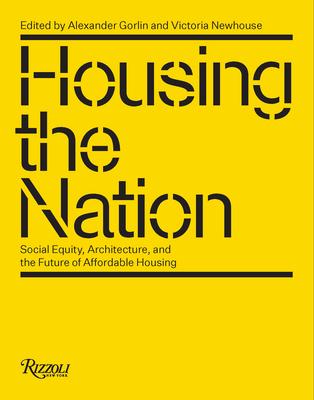Scholars, advocates, and architects assess America’s affordable housing crisis and suggest various strategies to rectify it, including numerous images of important, recently built houses and complexes.
On any given night, more than 650,000 people in the United States--many with families and full-time jobs--experience homelessness. The shortfall in affordable housing is estimated to be 5 million units or more. Devastating effects of these conditions include an increase in multigenerational poverty, a decrease in economic mobility, and--since the housing crisis has a disproportionate impact on communities of color--a heightening of racial injustice.
Just as there was no single cause of the crisis, there is no single cure. Assembled here are essays by economists, scholars, architects, planners, and community organizers to address diverse aspects of the subject. The book discusses the history and extent of the US housing crisis; permanent affordable housing and affordable housing as a component of market-rate residential buildings; the development of community associations that can build and manage local units; links between housing production and climate change; and the pervasive and long-term consequences of racial discrimination in the housing market. Recent buildings by Studio Gang, Koning Eizenberg Architecture, and others illustrate affordable housing at its best, offering a glimpse of possible solutions.
Included are essays by Dean Baker, Richard Florida, Robert Kuttner, Michael Gecan, Rosanne Haggerty, J. Phillip Thompson, Margery Perlmutter, David Dante Troutt, Justin Steil, Christopher Hawthorne, David Burney, Jon McMillan, Viren Brahmbhatt, Richard Plunz, Kenneth Frampton, Mark Ginsberg, Fernando Pagés Ruiz, Jessica Holmes, Rusty Smith, Andrés Duany, Alan Organschi, Andrew Ruff, and Elizabeth Gray.
This book is Flexibound.












